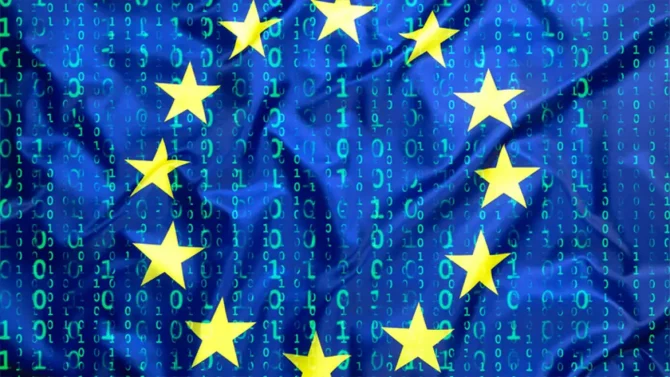
Worldwide Web?: E.U. Privacy Fine Poses Risks of Establishing National Boundaries on the Internet
On the preceding Monday, the European Union imposed an unprecedented penalty of 1.2 billion Euros ($1.3 billion) on Meta, formerly known as Facebook, for breaching essential privacy safeguard regulations. The concerns raised were primarily regarding the company’s handling of user data, including names, emails, I.P. addresses, messages, browsing history, and other personal information. The decision was accompanied by a demand that Meta cease the transfer of users’ data from Europe to the United States within a span of five months and halt the unlawful processing, including storage, in the U.S. of European users’ data within six months. This represents the most substantial and noteworthy privacy penalty issued since the European Union established a stringent privacy framework through the enactment of the General Data Protection Regulation (G.D.P.R.) half a decade ago.
Andrea Jelinek, Chair of the European Data Protection Board, remarked, The unparalleled fine sends a resolute message to organizations that severe infractions carry extensive consequences. However, some stakeholders remain skeptical. Johnny Ryan, a prominent member of the Irish Council for Civil Liberties, cautioned, Considering the magnitude of data cleansing required for hundreds of millions of European Union users over a ten-year span, it is exceedingly challenging to envision how the company can meet the E.U.’s deadline.
The discontinuation of services for European users by Meta remains uncertain. Although Meta has pledged that Facebook in Europe will not experience immediate disruptions, Austrian privacy activist Max Schrems asserts that the company will have to undergo fundamental restructuring of its systems to comply with the court’s ruling unless the United States amends its existing surveillance laws. Should Meta lack the legal foundation to transfer users’ data, its services in Europe would be compelled to cease operations, resulting in adverse effects on its business, financial condition, and operational outcomes.
Meta has publicly announced its intention to appeal the decision, anticipating a protracted legal process, and maintains that it is unjustly penalized for employing data-sharing practices similar to those employed by numerous other technology companies. Nick Clegg, Meta’s President of Global Affairs, criticized the ruling by stating, This decision is flawed, unwarranted, and sets a perilous precedent for the numerous companies engaged in data transfers between the E.U. and the U.S.
This case underscores the ongoing conflict between Europe’s stringent data privacy regulations and the comparatively lenient privacy stance adopted by the United States. The rigorous controls introduced by the E.U. to regulate the security measures and permissions pertaining to platforms and user data have played a pivotal role in curbing the power of prominent technology corporations. Conversely, U.S. policies grant intelligence agencies the authority to intercept communications, including digital messages originating from Europe.
The Privacy Shield Pact, an E.U.-U.S. data-sharing agreement that permitted companies such as Facebook to transfer users’ data across regions, was invalidated in a court hearing in 2020 following a lawsuit filed by Austrian privacy activist Max Schrems. The European court sided with Schrems, deeming the pact inadequate in safeguarding the fundamental rights of residents from electronic surveillance conducted by the U.S. government.
Brussels and Washington have been engaged in collaborative efforts and agreed upon a revised Privacy Shield pact last year, which could potentially cover Meta’s operations. If ratified before the company’s five-month deadline, Meta contends that its services can continue without disruption or impact on users. However, the approval of the agreement by European officials is pending, and there is a considerable likelihood that the E.U.’s highest court will not endorse a new pact. Moreover, even if a new privacy agreement is established, Schrems warns that it is unlikely to provide a permanent solution. He emphasizes, Unless U.S. surveillance laws are rectified, Meta will likely be obliged to retain E.U. data within the European Union.
Meta is not the sole company affected by this case, which raises concerns about how the Big Tech industry will address user privacy in light of the disparities between E.U. and U.S. policies. Schrems proposes a federated social network as a potential solution, wherein personal data would primarily reside within the European Union, except in necessary circumstances where cross-border transfers are deemed acceptable, such as when a European user directly messages a user in the United States. Nevertheless, irrespective of the chosen path forward, a resolution must be reached to ensure the preservation of the global nature of the worldwide web. As Nick Clegg aptly stated, Deprived of the ability to transfer data across borders, the internet faces the risk of fragmenting into national and regional enclaves, constraining the global economy and rendering citizens in different countries incapable of accessing numerous shared services upon which we have grown dependent.





